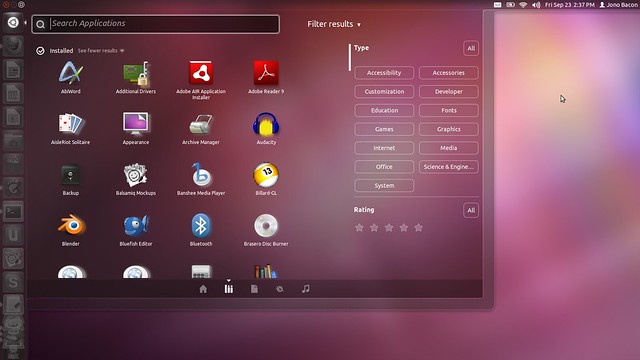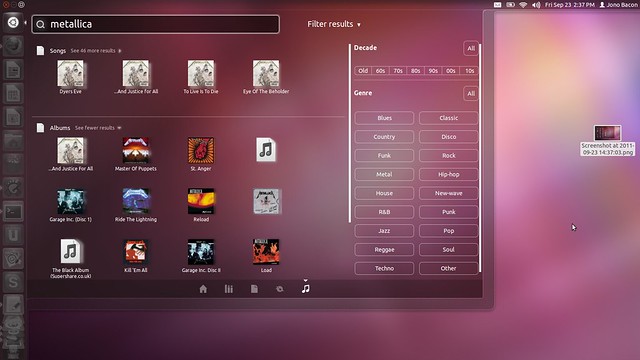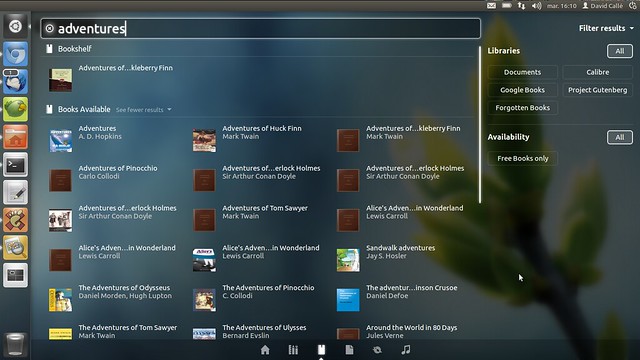
Video On Dealing With Burnout
Some of you will be familiar with the presentation I have done in the past on burnout, what it is, how to tell the symptoms, the 12 stages of burnout, and how to handle it in our communities. When I did the presentation I got some positive feedback that the content often resonated with people and their own burnout symptoms, so I have been keen to present an online version of the content that can be shared within our communities.
Tonight I just released the second video in my *Community Management Crib Notes* series, and devoted the video to this topic. I really encourage you to check it out, particularly if you are unfamiliar with the topic of burnout and it’s risks:
*Can’t see the vid? See it [here](https://www.youtube.com/watch?v=I88yluGb9oE)!*
I am producing more videos about community management, leadership, and best practice, so be sure to [subscribe to the YouTube channel](https://www.youtube.com/jonobacon).

Ubuntu 11.04 Covered By CNN-IBN in India
Ubuntu 11.04 got a very positive review CNN in India this weekend. Refered to as:
> One of the world wide web’s best kept secrets.
Check out the video below and skip to **15.05**:
*Can’t see it? See the video [here](https://www.youtube.com/watch?v=Zv_KNeV2if8&feature=player_detailpage#t=905s)*.
Rockin’!
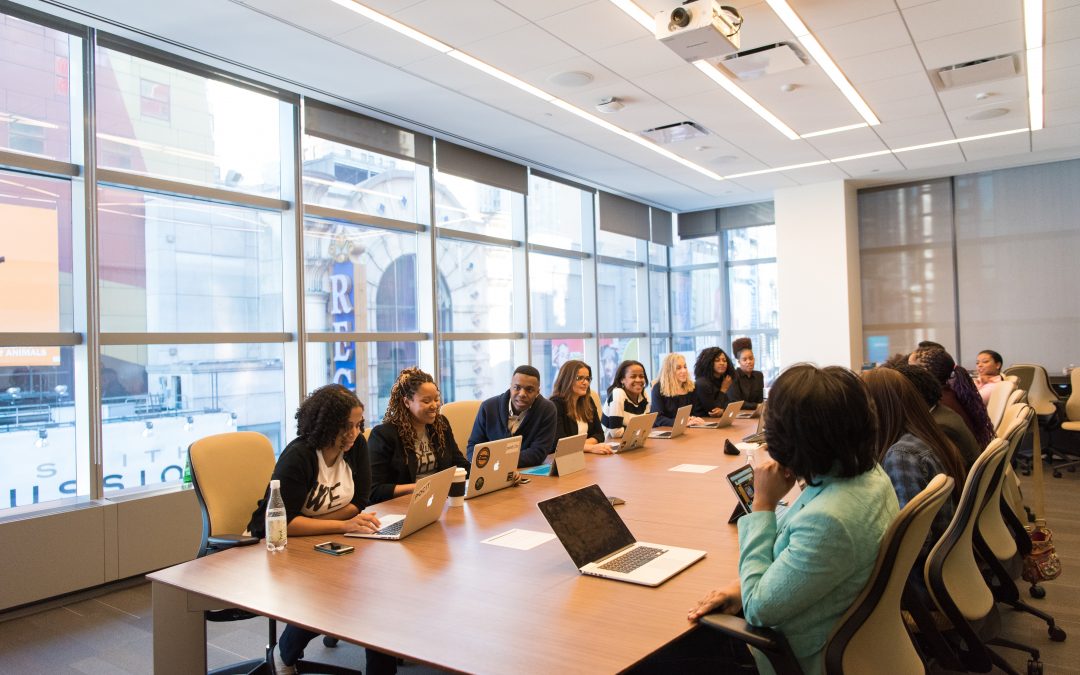
Eric Ward Joining the Community Team at Canonical

On Monday next week I will be welcoming the *sixth horseman* to the Community Team at Canonical; he will be joining Daniel Holbach, Jorge Castro, David “the man with the plan” Planella, Ahmed Kamal, and myself on our adventure to build a fun, productive, and passionate Ubuntu community.
He is **Eric Ward** and he will be joining us as the **QA Community Coordinator**. Eric is based in the USA and will be tasked to refine and continue to grow our Quality Assurance community. He will be looking at what we need to fix in the on-ramp, getting our manual tests in shape, growing our community of testers, building a regular testing cadence, and then interfacing with Daniel and others around how our community of developers can resolve issues highlighted in this testing.
Eric is a smart guy, and we are all excited to work with him. So you can all get to know him a little better, I asked him a few questions about his new role to give you some background:
**How did you get involved with open source projects?**
> Over the years, several projects I have worked on have leveraged open source software (Apache HTTP server, Apache Tomcat) as well as proprietary software (IIS, WebSphere, etc) as part of their development / deployment environments. While working on these various projects, my teammates and I almost always found it easier to find support, documentation, work-arounds and solutions for issues that would crop up during our product release cycles for our open source components versus any of the proprietary components we worked with. These experiences are when I first started to become consciously aware of some of the advantages of open source projects and their communities.
> While I was working at Novell they acquired SUSE Linux and I was assigned to help work on the QA efforts for the SUSE Linux Enterprise Desktop (SLED). This was my first major exposure to working on an open source project and I had a great time working with engineers like Larry Ewing on the F-Spot component of the project.
> From a purely hobbyist stand point, I’ve enjoyed tinkering with mythtv boxes using pcHDTV cards and using dd-wrt on some of my Wi-Fi routers.
**How did you get involved in QA?**
> During college I worked for Novell on a couple of their QA teams. This gave me a great opportunity to wet my appetite and learn about various technologies and processes involved with the software development process. During this time I thoroughly enjoyed setting up the test environments and QAing the products I was responsible for.
> So while I’ve always strived to make the products I work on more robust and reliable, what I’ve truly enjoyed about QA work is getting to work with superb engineers, technologies and breaking stuff.
> When it is all said and done, it is great feeling to work on products / projects where you can see your contributions and the contributions of your team have improved the lives of people you know as well as countless others that use the product.
**What excites you about the role working and working with the community team?**
> As an avid Regina Spektor, Ingrid Michaelson, Lily Allen and Adele fan, I thought it might be a good idea to expand my horizons and to mingle with a team that has a flair for slightly more heavy metal tunes.
> Members of my extended family and I have enjoyed using Ubuntu for our personal computing needs for a couple years now. As such, I am excited to get the chance to make contributions to help improve an already great Linux distribution and community. I’m also really looking forward to getting the chance to play with juju and the cloud technologies that Canonical is working on.
Eric starts on Monday…give him a warm welcome, folks!
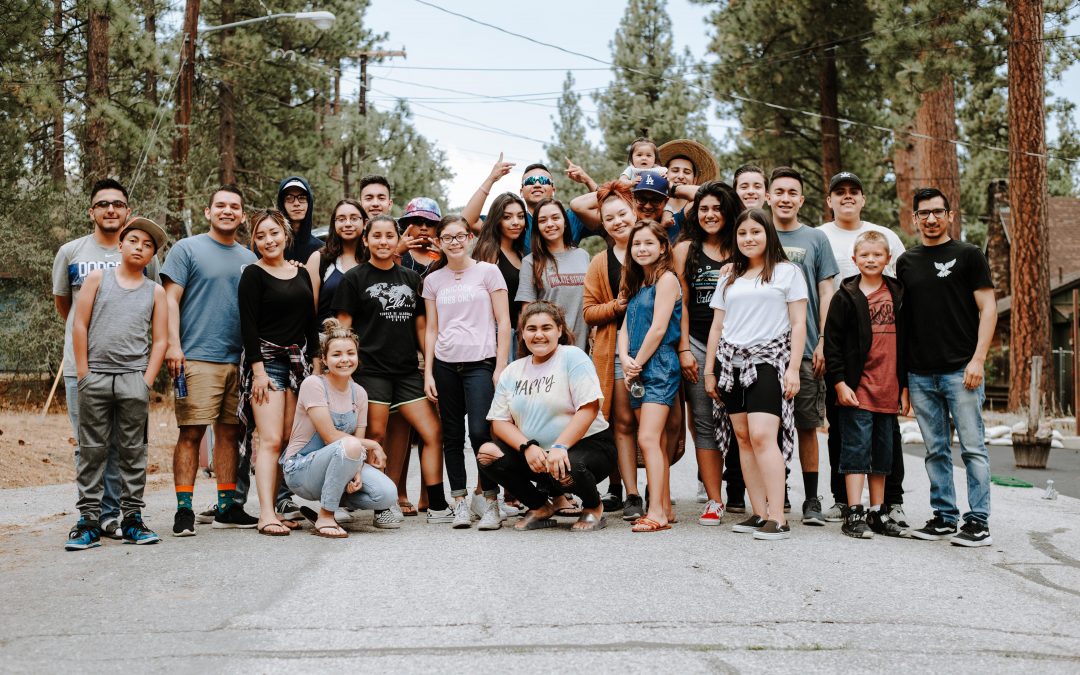
Bacon And Coffee Powered World Record
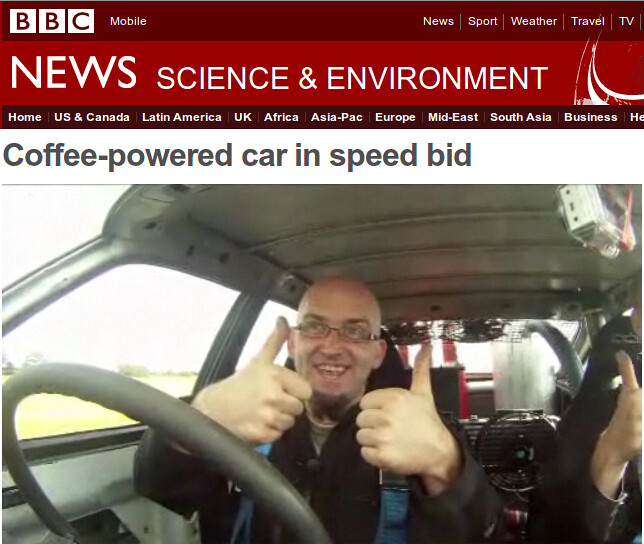
*Yep, hair is an enemy of the Bacon household*.
A little while back I mentioned that [my brother was working on a coffee powered car](https://archivedblog.jonobacon.com/2011/07/29/coffee-car-world-record-powered-by-bacon/) and working to set a world land speed record with it. Well, he did it, he set the record, and a little media storm has brewed around it.
Check out the [BBC News video of the record](https://www.bbc.co.uk/news/science-environment-15033859), the coverage [on Slashdot](https://idle.slashdot.org/story/11/09/26/1617223/coffee-powered-car-breaks-world-record), and [on ExtremeTech](https://www.extremetech.com/extreme/97287-british-coffee-powered-car-breaks-world-record).
Be sure to [follow him on Twitter](https://twitter.com/#!/thecoffeecar).
I am so proud of him; what a stunning accomplishment. I can’t wait to see what he does next with it!
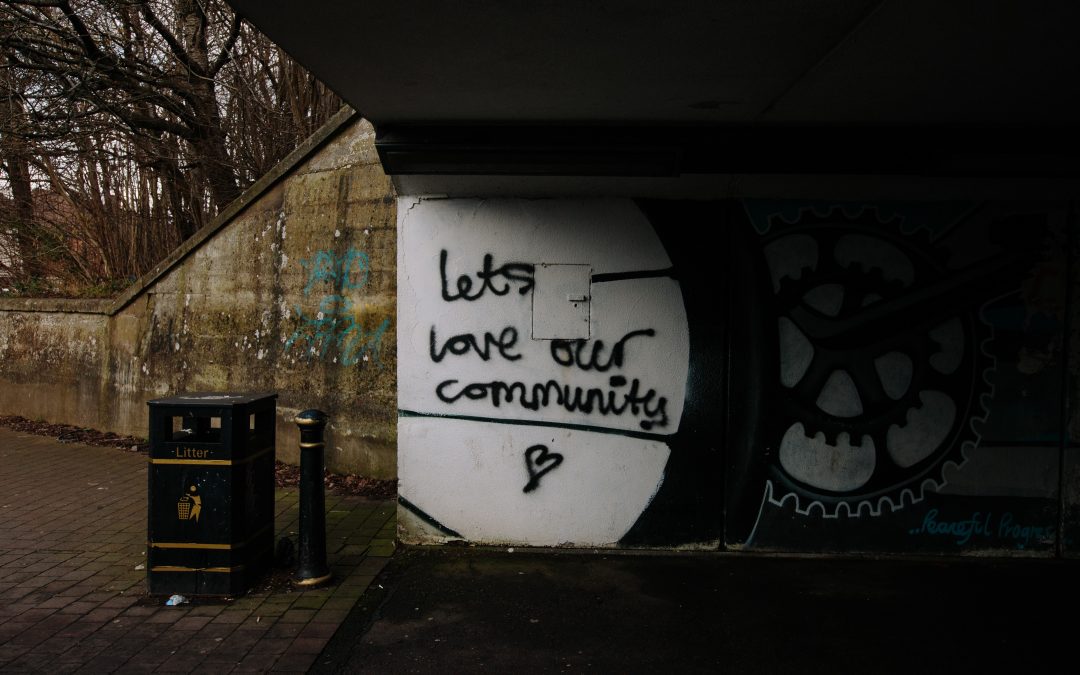
Unity Lenses and Books
One key focus of work in the Ubuntu 11.10 cycle was getting the lenses functionality in Unity in shape. 11.10 brings a series of stability and usability improvements to the lenses functionality.
One thing you will notice is that at the bottom of the dash, which you can see by clicking on the Ubuntu button in the launcher, you will see a series of different icons for the different lenses:

These lenses provide a consistent way of viewing different types of content on your computer. For example, available applications:
…and here is the music lens; it shows the albums on your computer, and you can search your music and then click on albums or songs to play them:
Aside from being generally excited about the improvements made to the lenses in Ubuntu 11.10, I do have an ulterior motive for writing this post, and a great story to share too.
In the Ubuntu 11.10 cycle there has also been a series of improvements to the *Ubuntu Software Center* and we are also now selling magazine content there. I can see a bright future where more magazines, books, and periodicals are also available. While the content is coming, it struck me that there wasn’t a consistent interface for viewing and reading this content.
What initially sprung to mind was a Kindle-like helper application. When you buy a magazine it puts the PDF into `~/Documents`, so it seemed as simple writing an app that just reads in content and displays it in a nice UI.
It then struck me that this is *exactly what lenses* are for. I shared these thoughts with some members of the design team, and someone pointed me to the work going on on the books lens by David Callé. I emailed David to share these thoughts about providing a means to view these purchased documents (as well as other documents in that directory), and David was excited about working on the lens more.
With the improvements to the lenses happening in Ubuntu 11.10, David needed to port some of his work to some new APIs, but that has been completed and he now has a decently functioning books lens. Here is a screenshot from David of it running in Unity 2D:
So, my ulterior motive?
Well, to encourage some of you to join David and hack on the books lens and make it rocking for Ubuntu 12.04! Here are the details:
* **Launchpad Project**: [https://launchpad.net/unity-books-lens](https://launchpad.net/unity-books-lens)
* **PPA**: [https://launchpad.net/~davidc3/+archive/books-lens](https://launchpad.net/~davidc3/+archive/books-lens)
You can also find [documentation here](https://wiki.ubuntu.com/Unity/Lenses) for the Lenses framework. Questions about lenses and other Unity technology can be asked in the `#ayatana` IRC channel on freenode.
When I spoke to David last there were still a few notable issues:
* Until a few bugs are fixed, the lens works better in Unity 2D.
* It can be very slow as the results loading is not optimized.
* Calibre integration is disabled until Calibre doesn’t make the whole session crash.
David is looking for testers willing to try to break things, as well as people who know about online sources of ebooks or books API that could be added, and folks who can review code branches.
IF you are interested in helping, be sure to check out the Launchpad project and participate. Feel free to leave questions and comments here too and I am sure David will respond. Rocking!

Represent
On Saturday my band, [Severed Fifth](https://www.severedfifth.com) will be supporting Exodus, Heathen, and Attitude Adjustment at Gary Holt’s (Exodus guitarist and currently playing with Slayer) wedding reception.
I will be there representing:
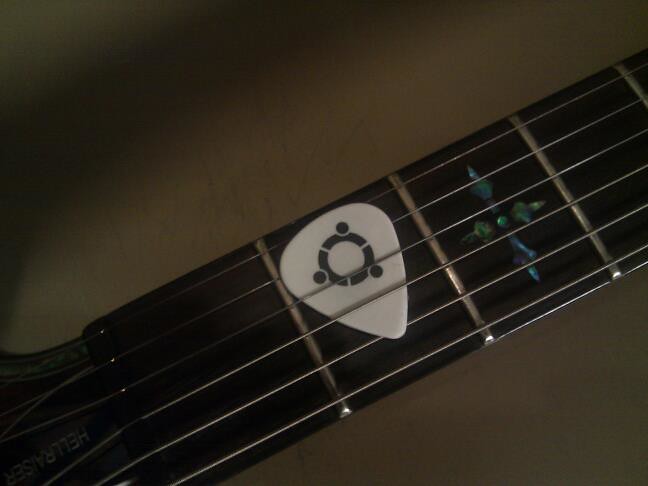
*Taken at rehearsal tonight*.
Thanks to *Steve Conklin* for making the magic happen.

Getting Older
Tomorrow I will turn 32.
I have noticed that ever since I got into my thirties, whenever people of a similar age know it is my birthday, the conversation is always amusingly similar. They suddenly turn into the [four yorkshiremen](https://www.youtube.com/watch?v=Xe1a1wHxTyo), rattling off progressively worsening examples of the ailments of age, about how *things ache more than they did*, *I just don’t have the energy I once had*, *hangovers last longer*, *married life is different*, and *
Screw that.
I have never been happier. I have wonderful wife, beautiful home, the best job in the world, incredible friends and family, and while I admittedly have *Bon Jovi Knee*, my early thirties feel great. There is a world of people fitter, smarter, and better looking than me out there, but I am happy, and I am thankful for that.
Mind you, I do find myself enjoying comfortable trousers more than I did. Uh oh.

Community Management Crib Notes: Conflict Resolution
I have decided to kick off a new series of videos called *Community Management Crib Notes* discussing various community management topics, and here is the first video, this time on the topic of *conflict resolution*. In this video I discuss the different between conflict and disputes, the attributes that can make people engage in conflict, and how we handle conflict situations and drive towards consensus.
I am new at this video-making business, so this is a first shot at this kind of thing. Be gentle, they should get better. 🙂
Be sure to let me know your suggestions for future topics in the comments, and [subscribe to the videos](https://www.youtube.com/jonobacon)
Anyway, without further ago…
Part 1:
*Can’t see the video? [Click here](https://www.youtube.com/watch?v=ypLgYJWbT3E) to see it on YouTube!*
Part 2:
*Can’t see the video? [Click here](https://www.youtube.com/redirect?q=http%3A%2F%2Fwww.youtube.com%2Fwatch%3Fv%3D70CSY1H1bx8&session_token=fWFub-LxgHkNJA_m8FjD_DSYkMd8MTMxNTk3NTUwMEAxMzE1ODg5MTAw) to see it on YouTube!*
Be sure to share your experiences, stories and feedback in the comments!

Ubuntu Developer Survey Report and Next Steps
Hot on the heels of my [Ubuntu Membership survey report](https://archivedblog.jonobacon.com/2011/09/05/ubuntu-membership-process-survey-report-and-next-steps/) and [follow up discussion](https://archivedblog.jonobacon.com/2011/09/07/ubuntu-membership-next-steps/), I am delighted to present the results of the Ubuntu Developer survey that I issued a little while ago.
Generally the feedback is quite positive, particularly for *MOTU* applications, but the feedback has highlighted some useful areas in which we discuss some improvements. These are primarily in the area of documentation of the process and expectations for *Core Developer* and *Per-Package Uploader* applicants.
**[Download the report here](https://ubuntuone.com/0L7YnAHC0MRC2cHgLlq4n5)**.
I have kicked off a discussion with the [Technical Board](https://www.ubuntu.com/project/about-ubuntu/governance) and [Developer Membership Board](https://wiki.ubuntu.com/DeveloperMembershipBoard) to propose a meeting where we can discuss these findings and put in place some next steps to drive some improvements in the issues highlighted.

Ubuntu Membership Next Steps
Recently I [blogged about the Ubuntu Membership survey report](https://archivedblog.jonobacon.com/2011/09/05/ubuntu-membership-process-survey-report-and-next-steps/) and that we were planning to have a meeting with the [Community Council](https://wiki.ubuntu.com/CommunityCouncil) to review the findings and outline some next steps. I just wanted to provide a quick update on this.
We had the meeting yesterday, and you can [read the meeting log here](https://irclogs.ubuntu.com/2011/09/06/%23ubuntu-meeting.html#t21:00) and we had some great outcomes and next steps.
In the report I provided the findings, and the feedback was generally very positive about how our membership process works. I did though outline the primary themes for areas in which we can drive some improvements. They are:
* **Setting Expectations** – there was a lot of feedback that suggests that the expectations around membership are unclear. This survey has outlined primary areas of participation (e.g. LoCo Teams and Translations) so we could explore methods of clearly defining expectations in those specific areas more.
* **How The Process Works** – some feedback suggested that elements of how the process works were unclear. A documentation review could be useful
* **Mentoring and Support** – attitudes to mentoring was divided in the feedback. The feedback did suggest that some find mentoring useful and the best support comes
from other members – we could explore ways of better connecting prospective members to existing members (maybe rotated meetings, AskUbuntu or something else).
* **Meeting Improvements** – feedback suggested concerns about the timeliness of getting to applications (e.g. prospective members are sitting around for hours before the board gets to their application) and meetings not going ahead due to lack of quorum. We could explore finer grained timing of application reviews and possibly expanding the boards to prevent the quorum issue.
We first discussed the *Setting Expectations* topic in the meeting and identified that we could provide more examples of what is considered good work. I took an action to put together some wiki pages and to ask each of the *Regional Membership Boards* to provide input (this has been completed and we are awaiting feedback):
* jono to set up the pages and then mail the RMBs for input
*Mako* also offered input that we could encourage those who provide testimonials to also provide input and guidance on if the wiki application page from the member could benefit from some improvements. Mako is going to add this clarification to the documentation:
* mako to add clarification to docs to encourage reviewing apps from testimonials
*popey* pointed out the the [Ubuntu Membership page](https://wiki.ubuntu.com/Membership) doesn’t really provide a crisp and concise description of the benefits and purpose of member. He took an action to add this:
* popey add elevator pitch to Membership page summarizing the purpose and function of membership
*Daniel* also outlined that many prospective members don’t realize there is a mailing list where you can ask questions. He is going to raise the visibility of this list in the documentation:
* dholbach raise awareness of the list as a place for support
We also talked a lot about the feedback in the report about meetings. One point that popey made was that if a given board does not have quorum a good last resort is to look for other governors empowered to provide membership and ask them to step in to help make quorum. As an example, if the EMEA board is missing one person for quorum, they could ask a member of one of the other boards to step in to make quorum so the meeting can go ahead. This last resort is approved by the Community Council but not necessarily known as an option to all boards, so popey volunteered to communicate this out, and this should reduce quorum issues:
* popey mail RMBs about lack of quorum workflow
Finally, it was identified that there is no current documentation for how new board members perform approvals. *Lyz* has started work on such a document and will publish it:
* pleia2 to publish “welcome” document for new board members with policy for approvals
Overall I am really pleased with how this process has developed. The report provided some solid data and the meeting reviewed that data to drive improvements and next steps. I am confident this will make the Ubuntu Membership process even smoother and more efficient. Thanks to everyone who participated in the meeting, and thanks to the Community Council and all the Regional Membership Boards for all their contributions!

